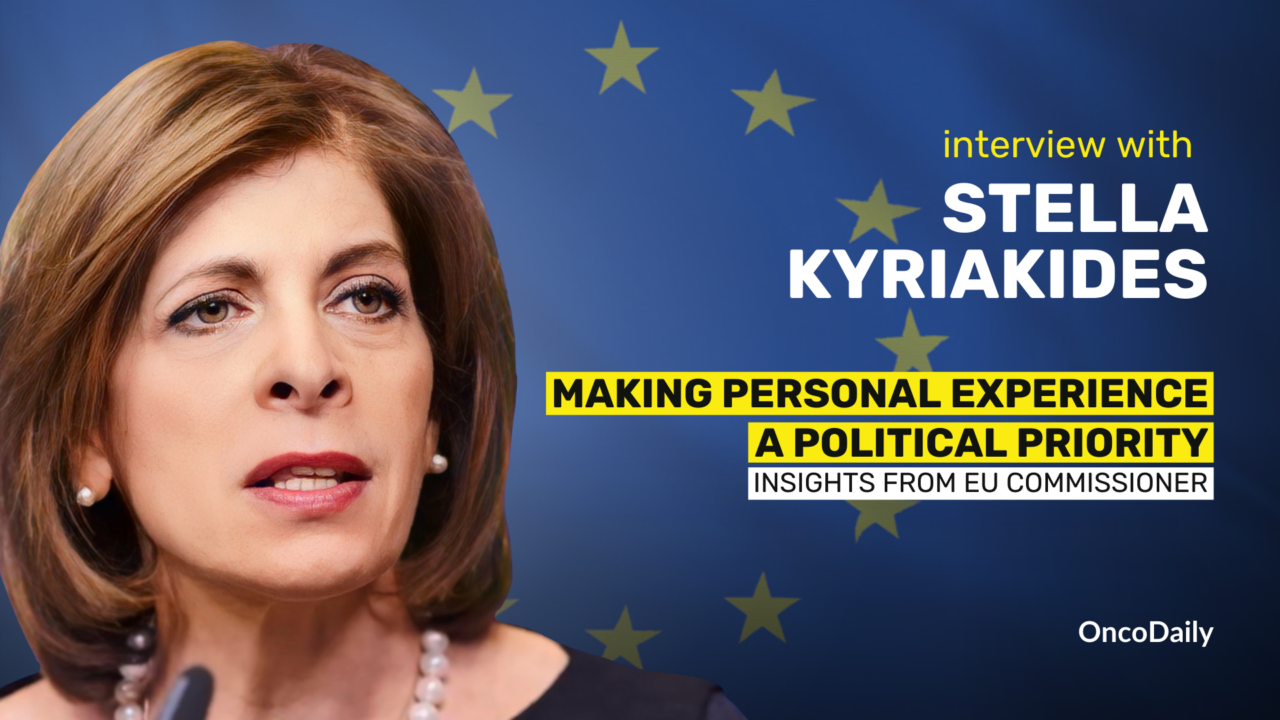The fight against cancer in Europe has taken center stage, with Europe’s Beating Cancer Plan being one of the most comprehensive initiatives aimed at reshaping cancer care across the continent. In an exclusive interview, EU Commissioner for Health and Food Safety, Stella Kyriakides, shares key achievements, under-discussed challenges, and her vision for the future of cancer care in Europe. As a breast cancer survivor herself, Commissioner Kyriakides brings both a professional and deeply personal perspective to her mission, advocating for equity, mental health, innovation, and resilience in healthcare.
Europe’s Beating Cancer Plan
Launched in 2021, Europe’s Beating Cancer Plan is one of the most ambitious and well-founded plans that Europe has ever had. This holistic plan goes from prevention to screening, treatment, care, and quality of life. “We always say, this is every European citizen’s plan. Because what we are trying to do through this plan is to change the realities for cancer care in Europe so that we have equal access and care for all citizens of Europe,” Kyriakides noted.
Key Achievements of Europe’s Beating Cancer Plan
Under Kyriakides’ leadership, Europe’s Beating Cancer Plan has made significant progress in improving cancer care. She highlighted some of the plan’s major accomplishments during her mandate:
- Updated Cancer Screening Recommendations: For the first time in 19 years, breast, cervical, and colorectal cancer screening recommendations were updated for all member states. This ensures that citizens receive the most up-to-date care.
- Access to Medicines: The plan also focuses on ensuring that all cancer patients have equal access to medicines and innovative treatments, a crucial step toward bridging the gaps in care between different regions.
- Comprehensive Cancer Centres: A network of Comprehensive Cancer Centres is being established to promote equity in care across Europe.
“There are many different actions going from prevention to quality of life afterwards, with the main focus being on ensuring that every European citizen and every European cancer patient, no matter where they live, have equal chances of surviving cancer, equal access to medicines, equal access to optimal treatment and care,” Kyriakides stated.
COVID-19 as One of the Biggest Challenges in Delivering Cancer Care
Like many healthcare initiatives, the Beating Cancer Plan faced unexpected challenges due to the COVID-19 pandemic. Access to screening programs and treatments was disrupted as healthcare systems prioritized pandemic response.
“Member states had to put screening programs on hold because of the pandemic… COVID-19 impacted the access to care. That was an unprecedented challenge that could not be foreseen … But we worked very closely with the member states and with the health ministers to ensure that people got back to screening and that cancer treatments were not interrupted,” Kyriakides explained.
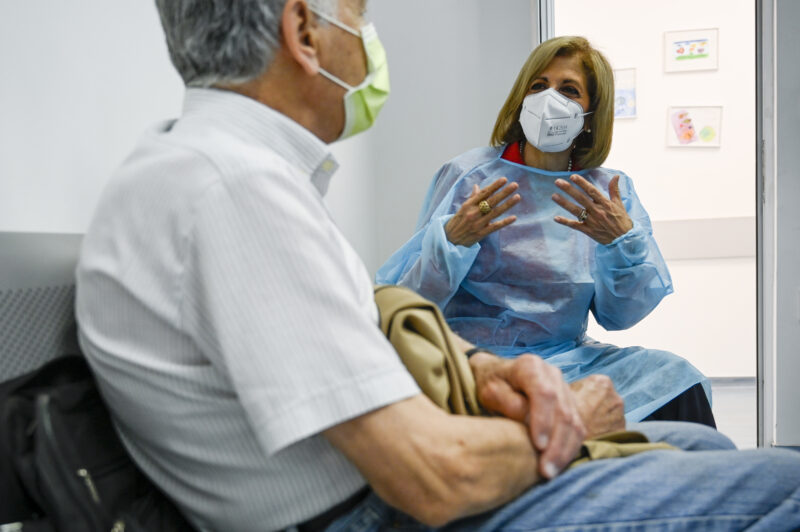
Despite the immense pressure COVID-19 placed on health systems, patients, and all citizens across Europe, the Commissioner described it as a defining moment that highlighted the power of solidarity in health. “We were able to deliver COVID-19 vaccines simultaneously, on the same day, to all citizens, regardless of which member state they lived in. This was a crucial step in building what would become the European Health Union, demonstrating that we are stronger together,” Kyriakides said.
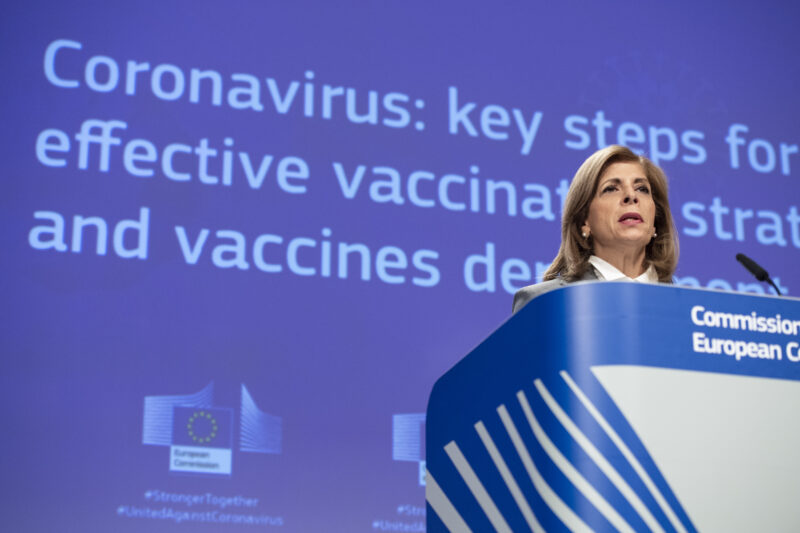
Mental Health and Quality of Life as Integral Parts of Cancer Care
The psychosocial care and mental health of cancer patients and their families is another, often overlooked challenge that the Commissioner puts a great emphasis on. “We often don’t talk about this. We talk about other treatments for cancer, but we don’t look at treating the whole person and not only the disease… That’s why, for the first time as part of the European Health Union, we introduced a comprehensive mental health strategy addressing also mental health within cancer care. This plan is expansive, well-funded, and designed to implement a wide range of actions gradually but steadily across Europe,” explains Commissioner Kyriakides.
Bridging Gaps in Cancer Care Across Europe
Despite significant advances, disparities remain, particularly in rural or under-resourced areas, with limited access to innovative treatments. “Ensuring equitable access to innovative medicines is a huge challenge,” acknowledges Kyriakides. To address this, the EU has introduced a new pharmaceutical reform proposal aimed at creating a single market of medicines, enhancing access to innovative treatments for all EU citizens. “In order to understand what the problems are, you need to be able to identify them.
For the first time, we have created the European Cancer Inequalities Registry, which is mapping the situation in relation to cancer care and medicines in different member states. The reason for this is that it allows us to focus on where we should be supporting member states in order to bridge the gaps so that we are able to bring forward the concept of equity in cancer care across the EU,” she adds.
Besides the European Cancer Inequalities Registry which allows to explore where the support is needed and help member states through the cancer plan, the EU is building up a network of accredited Comprehensive Cancer Centres. “This is the way in which you bring up equality in access to care of all the patients in the EU. We also have an ongoing workforce training program for healthcare professionals. By the next year, it will be running in 100 cancer centers in 15 member states,” emphasized Kyriakides.
Rare and Pediatric Cancers: Addressing Challenges and Enhancing Support
Rare and pediatric cancers often receive less attention. According to the Commissioner, the Commission has focused a significant part of the plan and joint actions on addressing the needs of these populations.
“The pharmaceutical reform that we proposed has many proposals in the area of innovative medicines, which will improve access to innovative medicines for all patient groups, including those with rare diseases and pediatric cancers,” Kyriakides stated.
Sometimes, there aren’t enough patients with certain types of cancer to participate in clinical trials, making it difficult to determine the most effective treatment plans for that specific cancer type. In many cases, only a few hundred people may share the same cancer type. According to the Commissioner, another way to address these challenges was the establishment of the European Reference Networks. “It allows you to pool all the knowledge together.
So, even if you don’t have a large number of patients, a critical mass of patients, you are pooling it all together. So, even if you come from a member state where you are one of the very few, you are part of a big network with the expertise to bring all the knowledge together,” Kyriakides stated.
Other vital initiatives that tackle the existing disparities include European Reference Networks for adults with rare diseases and pediatric cancers and the Network of Youth Cancer Survivors to allow everyone to come together on a platform and exchange information, including young patients.
However, the collaborations and initiatives that aim to improve cancer care among these groups of patients are not limited to EU borders. “For the first time, we have linked Europe’s Beating Cancer Plan with the US Cancer Moonshot in order to work on pediatric cancers together and really exchange information,” the Commissioner added.
Life After Cancer: Employment and Discrimination in Access to Financial Services
Life after cancer brings its own set of challenges, in particular, discrimination in employment and financial services. Kyriakides highlighted the progress on the “right to be forgotten,” which has expanded to 13 member states.
“No type of discrimination for any patient! Retention of employment and return to work are two very important issues for cancer patients, this is a very important area that we need to protect… any sort of discrimination following a cancer diagnosis needs to be addressed. Europe’s Beating Cancer Plan is a part of this because we don’t only look at care in terms of medical care, but also the quality of life, and those who live after having cancer need to have their quality of life and their rights safeguarded,” Kyriakides said.
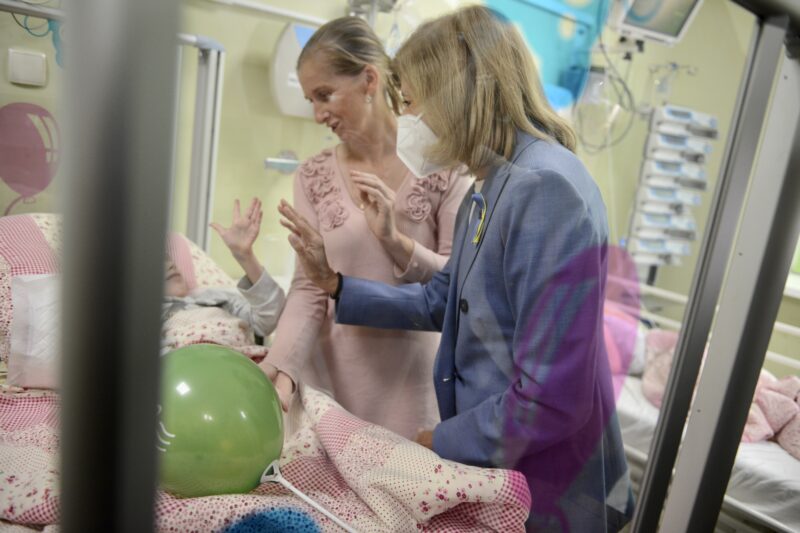
Looking to the Future: A Vision for Cancer Care in Europe
When asked about her vision for cancer care over the next five years, Kyriakides expressed her desire to see gaps in cancer care fully bridged across Europe. She emphasized the importance of Comprehensive Cancer Centres, ongoing professional training, and the need for resilient healthcare systems that can withstand future crises.
“Success is defined in different ways and by different milestones. I believe that what we would like to see with Europe’s Beating Cancer Plan is to deliver on the promises that it has made to citizens, and to ensure that we have equal access to screening programs, treatment, good quality of life for all those who are diagnosed with cancer … We are working towards that, and we will go on working towards that,” Kyriakides noted.

Keeping Health as a Political Priority
For the next generation of healthcare professionals, oncologists, and policymakers who will continue the work on Europe’s Beating Cancer Plan Kyriakides has a simple but compelling message: “To keep health as a political priority.”
“Europe’s Beating Cancer Plan is very much a priority for this Commission. It has been a priority for President von der Leyen from the very beginning. And it’s a plan which is now a pillar of the European Health Union. So, we will continue to work in that direction because that’s what European citizens expect from us,” Kyriakides added.
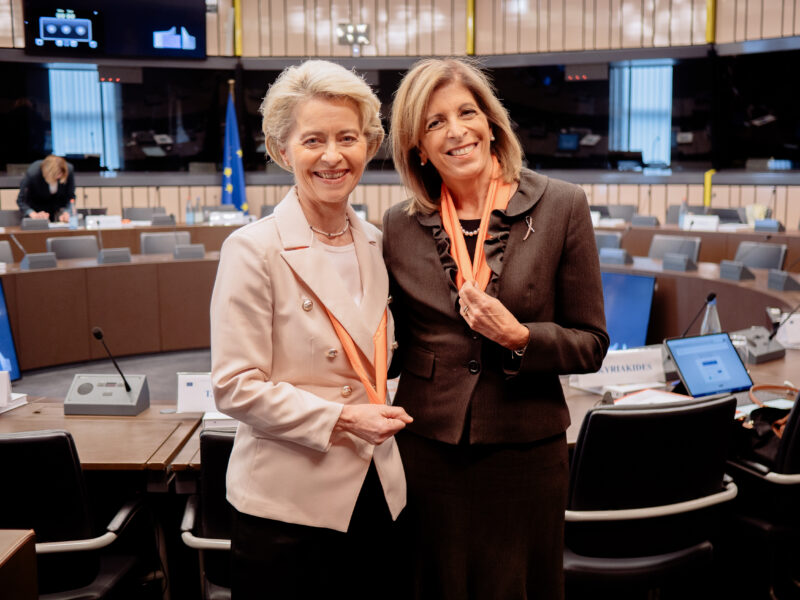
A Personal Journey That Fuels the Mission
The breast cancer journey of Commissioner Stella Kyriakides has been widely discussed and had a key role in shaping the principles behind Europe’s beating cancer plan and the approach to policymaking.
“Being someone who has a cancer experience definitely changes your outlook. It has always been a part of my life. It’s very much a priority in the work that we do to ensure that we protect the rights of patients. But I would say that it also determines the work we do and the policies that we promote,” Kyriakides shares.
In addition to being a cancer survivor, Kyriakides is also a qualified psychologist and has extensive experience in mental health, allowing her to understand the mental health needs of cancer patients and advocate for appropriate policies.
“I believe that when you go through any life experience, which could be any difficult life experience, you can use this experience to bring about change, to make your personal experience political,” Kyriakides stated.
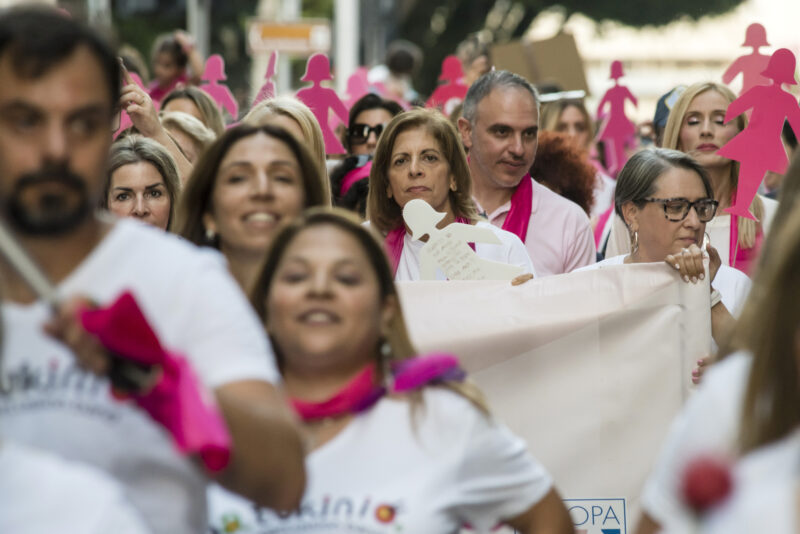
You Are Not Alone: A Message of Hope from the EU Commissioner of Health and Food Safety
While each individual’s cancer journey is unique, Commissioner Kyriakides, herself a person with an impactful and motivating life after cancer, offered a universal message to all cancer patients and survivors:
“Every cancer patient, when they hear the diagnosis, enters a world of uncertainty. But it’s a journey where there is someone there to hold their hand and walk this pathway with them so that they are able to deal with their diagnosis and continue with their lives … I believe that it’s a very strong community of doctors, scientists, researchers, policymakers, and patients. And everybody is working in the same direction. And this is the community that Europe’s Beating Cancer Plan brought together,” Kyriakides concludes.
Under Commissioner Stella Kyriakides’ leadership, Europe’s Beating Cancer Plan has catalyzed transformative changes in cancer care across the continent, with a clear commitment to a future where all cancer patients not only have access to the highest standard of care but also experience an improved quality of life during and after treatment. The goal is clear: no patient should be left behind.


